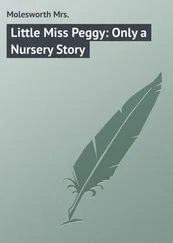Mrs. Molesworth - Blanche - A Story for Girls
Здесь есть возможность читать онлайн «Mrs. Molesworth - Blanche - A Story for Girls» — ознакомительный отрывок электронной книги совершенно бесплатно, а после прочтения отрывка купить полную версию. В некоторых случаях можно слушать аудио, скачать через торрент в формате fb2 и присутствует краткое содержание. Жанр: foreign_prose, foreign_children, на английском языке. Описание произведения, (предисловие) а так же отзывы посетителей доступны на портале библиотеки ЛибКат.
- Название:Blanche: A Story for Girls
- Автор:
- Жанр:
- Год:неизвестен
- ISBN:нет данных
- Рейтинг книги:3 / 5. Голосов: 1
-
Избранное:Добавить в избранное
- Отзывы:
-
Ваша оценка:
- 60
- 1
- 2
- 3
- 4
- 5
Blanche: A Story for Girls: краткое содержание, описание и аннотация
Предлагаем к чтению аннотацию, описание, краткое содержание или предисловие (зависит от того, что написал сам автор книги «Blanche: A Story for Girls»). Если вы не нашли необходимую информацию о книге — напишите в комментариях, мы постараемся отыскать её.
Blanche: A Story for Girls — читать онлайн ознакомительный отрывок
Ниже представлен текст книги, разбитый по страницам. Система сохранения места последней прочитанной страницы, позволяет с удобством читать онлайн бесплатно книгу «Blanche: A Story for Girls», без необходимости каждый раз заново искать на чём Вы остановились. Поставьте закладку, и сможете в любой момент перейти на страницу, на которой закончили чтение.
Интервал:
Закладка:
“Pinnerton Lodge,” said Mrs Derwent to the foremost of the flymen; “do you know where that is?”
“Pinnerton Lodge,” repeated the man. Then, his memory refreshed by some of the standers-by, he exclaimed: “Oh, to be sure – out Pinnerton Green way. There’s two or three houses out there.”
“Then I shall want you to drive us there; but go first to Enneslie Street – Messrs Otterson and Bewley, the house-agents,” said Mrs Derwent, as she got into the fly, followed by her daughters.
“Pinnerton Green,” she repeated as they were driving off. “Oh yes; I remember now. That was what was in my mind. It was a sort of little hamlet near Blissmore, with an old-world well in the middle of the green. They must have built houses about there. How they have been building!” she continued, as the fly turned into the High Street of the little town. “I know where I am now; but really – it is almost incredible.”
Blanche and Stasy were looking about them with interest. But in comparison with London and Paris, and even Bordeaux, Blissmore did not strike them as anything but a small town. They had not their mother’s associations with grass-grown streets, and but one thoroughfare worthy the name, and two or three sleepy shops, whose modest windows scarcely allowed the goods for sale to be seen at all.
“It is a nice, bright, little place, I think,” said Blanche, as some rays of wintry sunshine lighted up the old church clock, which at that moment pealed out noon, sonorously enough, eliciting the exclamation, “Ah yes; there is a familiar sound,” from Mrs Derwent.
A moment later and they had turned into a side-street, to draw up, a few yards farther on, in front of a very modern, spick-and-span-looking house, half shop, half office, with the name they were in quest of, “Messrs Otterson and Bewley, House-agents, Auctioneers, etc,” in large black-and-gold letters, on the plate-glass.
“Enneslie Street,” said Mrs Derwent. “Why, this used to be Market Corner! There were only about half-a-dozen cottages, and, on market days, a few booths. Dear me! I feel like Rip Van Winkle.”
Chapter Four
Pinnerton Lodge
Mr Otterson received the strangers with formal and somewhat pompous civility, and a somewhat exaggerated caution, not to say suspiciousness of manner, which struck disagreeably on Mrs Derwent and Blanche, accustomed to have to do with people who knew as much about them as they did themselves.
The house could be seen at once, certainly; as to that there was no difficulty. But before entering further into the matter, Mr Otterson begged to be excused, but might he remind the ladies that his client empowered him to deal with no applicants whose references were not perfectly sufficient and satisfactory. Clear understanding in such cases was, according to his experience, the best in the end, even if it should cause a little delay at the outset.
“No delay need be caused in my case,” said Mrs Derwent, with a touch of haughtiness which her daughters enjoyed. “My references will be found perfectly satisfactory. Is this – this ultra caution, usual in such transactions,” she continued, flushing a little, “may I ask?”
And as she spoke, she drew out of her bag and deposited on the table two letters she had had the foresight to bring with her – one from the firm at Bordeaux, enclosing an acknowledgment to them of the money placed to the credit of “Mrs Anastasia Derwent” with their London bankers.
Mr Otterson’s keen eyes took in the nature of their contents even while scarcely seeming to glance at them. His manner grew a trifle less stilted.
“Cautious we have to be, madam,” he replied, “though you will not find us exaggeratedly so, I trust. And in the interests of our clients, we naturally feel it our duty to give the preference to the most desirable among the constantly increasing applications for houses here. In your case, possibly, being foreigners, a little extra – ”
“We are not foreigners,” said Blanche; “and if we were? I certainly am not surprised at the small number of upper-class ‘foreigners’ who come to England, if this is the sort of thing they have to go through.”
The house-agent glanced at her with a mixture of annoyance and admiration. She looked beautiful at that moment. Her fair face flushed, her usually gentle eyes sparkling.
“You – you misunderstand, madam,” he was beginning, when Mrs Derwent in her turn interrupted him.
“On the contrary, sir,” she said very quietly, “I think, it is distinctly you who have misunderstood us. As my daughter says, we are not foreigners. Beyond the statement of that fact, which you seem to consider important, I do not think we need waste time by entering into further particulars. The matter is a purely business one. If you do not find my references satisfactory, be so good as to say so at once, and I will apply to London agents about a house.”
In his heart Mr Otterson had no wish to let these really very promising applicants for the honour of inhabiting Pinnerton Lodge escape him. On the contrary, they struck him as just the sort of people its owner would approve of – not unwilling to lay out a little money on repairs and improvements, etc.
“I have in no way implied, madam, that the names you have submitted to me are unsatisfactory references,” he said, not without a touch of dignity. “As you observe, it is a matter of business, and if you approve, I will send a clerk at once to the house to have it all open for you.”
“He can go on the box of our fly,” said Mrs Derwent, with a glance out of the window; “I understand it is some little way off.” And as Mr Otterson touched a hand-bell standing beside him on the table, Mrs Derwent addressed him again.
“What has caused this increased demand for houses here?” she said. “What has led to the many changes in the place – the sudden growth of it?”
Mr Otterson raised his eyebrows in surprise.
“Naturally, of course, in the first instance, the school,” he replied. “And the breweries – the two large companies of brewers have brought a great many working men to the place, and the school even more. It has led to an immense amount of building – private houses of all classes, as the advantages and cheapness of the education to be got here are now almost unparalleled.”
Mrs Derwent looked surprised.
“I do not remember any school here in the old days,” she said. “At least – there was a small old school – but – ”
“That is the same, no doubt,” said the house-agent. “The foundation has been altered, by Act of Parliament, of course. The accumulated funds were very large: it is now a first-rate school for middle-class, indeed for upper-class boys, where economy is a consideration. Families have been in consequence flocking to Blissmore. But the last year or two has cooled down the rush a little. At one time it was almost alarming; but things are settling themselves now.”
Just then the clerk appeared. Mr Otterson opened the door, speeding the parting guests with more urbanity than he had received them.
“I will look in here on my return,” said Mrs Derwent, with a sufficiently courteous bow, “and tell you what we think of the house.”
“Oh mamma,” exclaimed Stasy, as soon as the three found themselves again in the privacy of the fly, “how horrid England is – how horrid English people are! How dared that common man speak to you like that, when you think how Monsieur Bergeret, who was far, far more a gentleman than he, used to treat you, as if you were a queen! Why, he used to look as proud as anything if you shook hands with him! Oh Blanchie, do let us go back – go home again. I have been feeling it ever since we arrived, that first night with the dreadful fog, though I didn’t like to say so.”
Читать дальшеИнтервал:
Закладка:
Похожие книги на «Blanche: A Story for Girls»
Представляем Вашему вниманию похожие книги на «Blanche: A Story for Girls» списком для выбора. Мы отобрали схожую по названию и смыслу литературу в надежде предоставить читателям больше вариантов отыскать новые, интересные, ещё непрочитанные произведения.
Обсуждение, отзывы о книге «Blanche: A Story for Girls» и просто собственные мнения читателей. Оставьте ваши комментарии, напишите, что Вы думаете о произведении, его смысле или главных героях. Укажите что конкретно понравилось, а что нет, и почему Вы так считаете.












